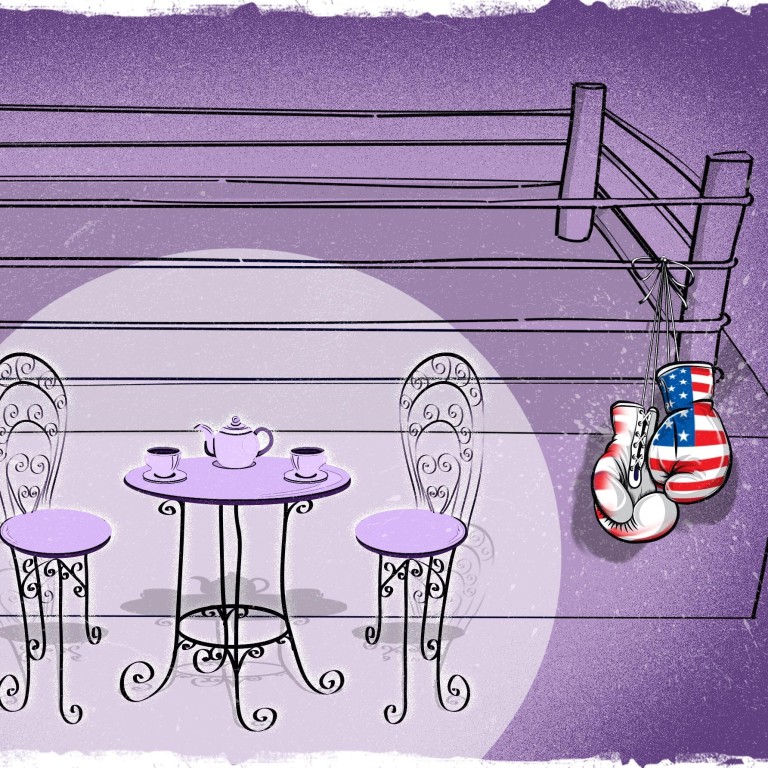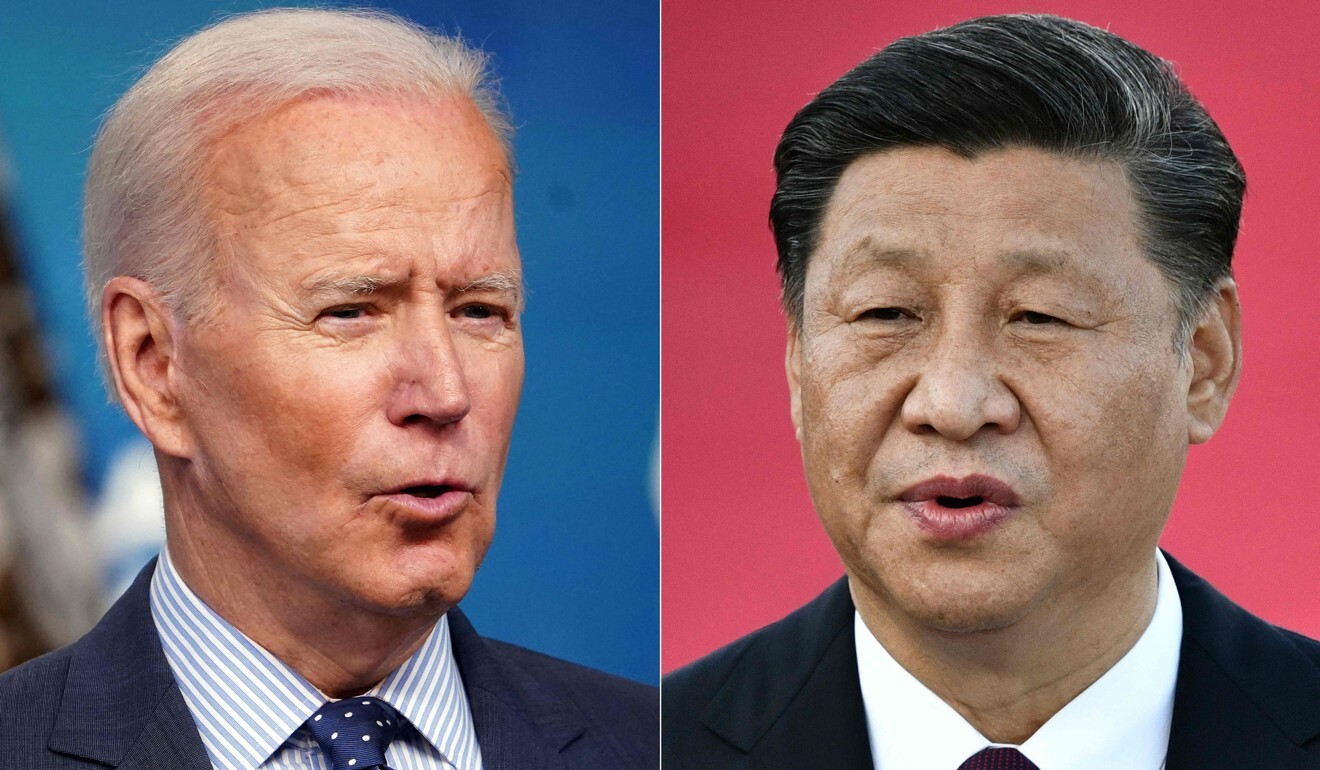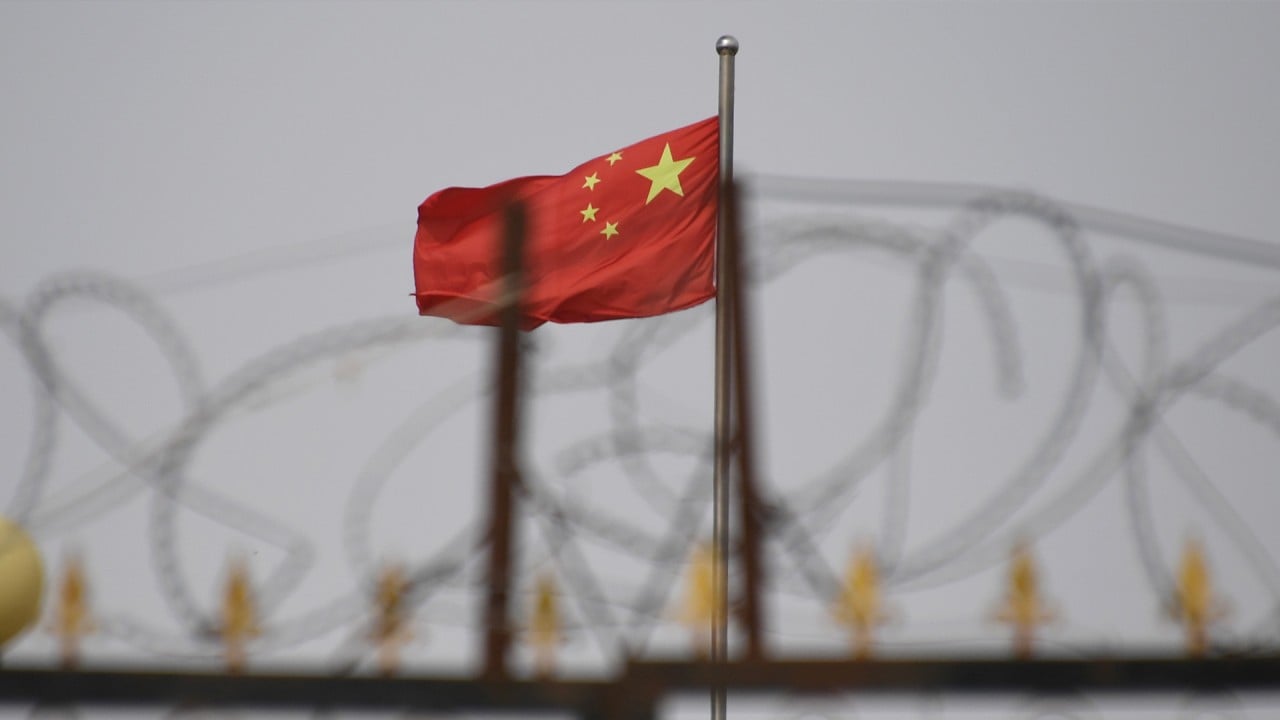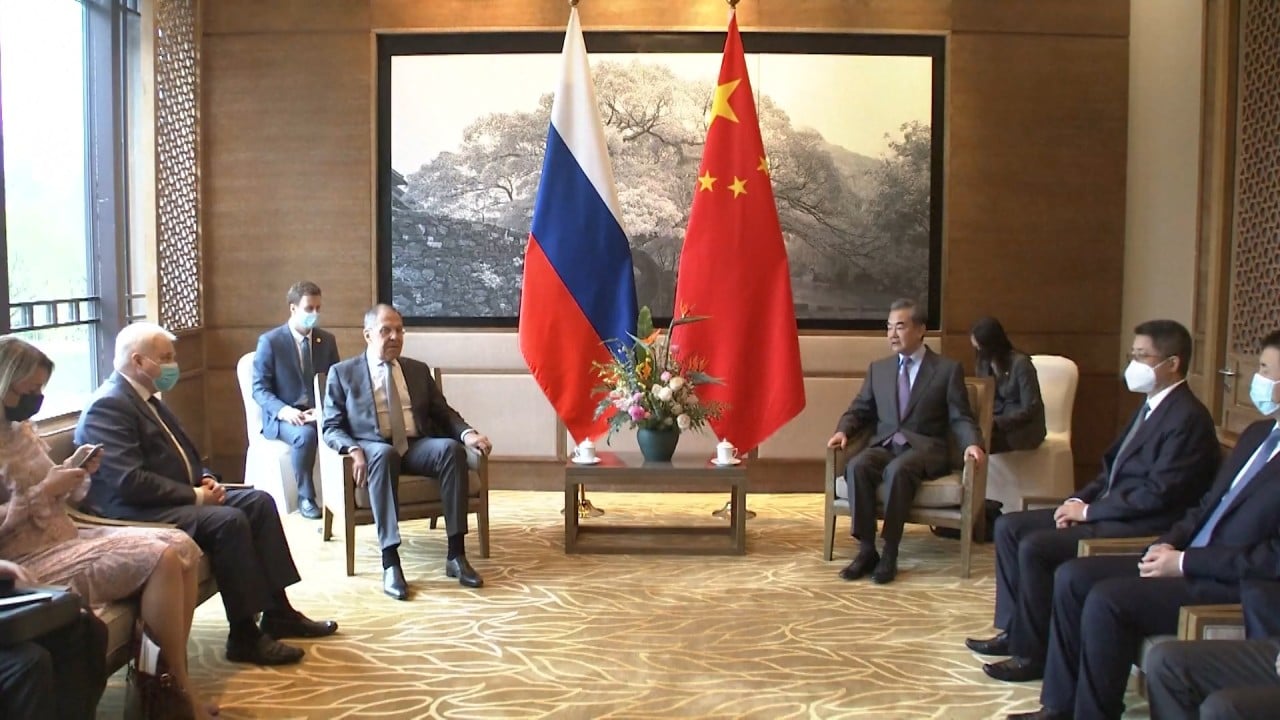
Will the time ever be right for Joe Biden and Xi Jinping to sit down together and talk?
- An explosive meeting between senior US and Chinese officials in Alaska earlier this year highlighted the deep divisions between the two sides
- The earliest opportunity for a face-to-face meeting between the two leaders is at the G20 summit in October, but expectations are low
The United States and China are jostling to secure the upper hand before their leaders meet for a high-stakes summit.
The White House in June signalled an interest in direct talks between the leaders “if the conditions are right and the circumstances are warranted”, while China’s Foreign Minister Wang Yi has said that the resumption of high-level dialogue would “depend on whether the US is sincere”.
Sources have told the South China Morning Post that US Deputy Secretary of State Wendy Sherman will visit Tianjin next week to meet China’s foreign vice-minister Xie Feng, where they will discuss the possibility of a meeting between US Secretary of State Antony Blinken and Chinese Foreign Minister Wang Yi.

02:23
Gloves off at top-level US-China summit in Alaska with on-camera sparring
Sherman’s trip is seen as crucial to making further preparations for future engagement between Biden and Xi, observers said.
The G20 summit in Italy in October would offer Xi and Biden an opportunity to meet on the sidelines, but diplomatic observers are not expecting substantial progress.
It is unclear if the two leaders will be able to agree to meet at the G20 or at other multilateral summits this year, or if Xi – who has not left the country since January 2020 – would attend the G20 meeting in person.
There could also be a chance for a bilateral to be arranged virtually, analysts say, but that would require substantial background work.
Xi-Biden summit moves closer as senior US diplomat visits China next week
The US has made clear that it will be engaging China “from a position of strength” while Beijing has stressed that it will not back down.
Steve Tsang, director of the SOAS China Institute at the University of London, said it would be “alarming” if a meeting between Biden and Xi could not be agreed upon and arranged at the G20.

“It would speak volumes about the state of relations between the USA and China,” he said. “I do not expect them to resolve their differences, just to establish a working relationship and a sense that they can talk to each other if necessary.”
Pang Zhongying, a professor of international relations at Ocean University, said that despite Wang’s comments, Beijing still wanted to stabilise its relationship with Washington.
“Right now, there is a sort of freewheeling, fluid feeling to the relations, and if it continues this way without being managed, the relationship may further deteriorate, since the relationship is currently in crisis,” he said.
If the two are able to meet there could at least be a resumption of the highest levels of communication, he said.
Trade war reaches third anniversary with ‘slim’ chance of de-escalation
“As for whether there can be anything concrete achieved for the next 3½ years of China-US relations under Biden, it is very hard,” he said. “But at least, you know how the other side feels, including on the pandemic, vaccines, economic recovery, and things like on Taiwan issues.”
Plans for Wang and Secretary of State Blinken to meet on the sidelines of a G20 foreign ministers’ meeting last month came to nothing.
For Beijing – invigorated by its containment of Covid-19 within its borders and its role as the only major economy to register positive growth during the pandemic – a leaders’ summit will be a chance to address areas of tension and to demonstrate, as it sought to do in Alaska, that China can hold its ground with the US.

03:36
Beijing hits back at Western sanctions against China’s alleged treatment of Uygur Muslims
Liu Weidong, a US affairs specialist at the Chinese Academy of Social Sciences in Beijing, said that both sides are still “feeling each other out”, but China will want the US to express goodwill first.
“From China’s side, it is the US that has been constantly on the offensive and China that has been on the defensive, so it will first require a period of time where the US is not so aggressively criticising and sanctioning China,” he said. “The US also needs to actively state that a summit between their leaders will have practical significance.”
Beijing has been bellicose in response to US sanctions on officials accused of human rights abuses, and has increasingly touted the effectiveness of its authoritarian system compared to that of Western democracies.
It has also highlighted China’s growth following its “century of humiliation” at the hands of foreign powers between the 1840s and 1940s, with a viral meme from the party mouthpiece People’s Daily proudly juxtaposing the US-China talks in Alaska with the 1901 signing of an “unequal treaty” with foreign powers.
For Washington, as it accelerates into economic recovery from the pandemic, a summit with Xi will highlight its strategic competition with China.
Biden’s administration has worked with allies in Europe and Asia to form a more concerted approach to Beijing – including a statement from the Group of Seven supporting Taiwan and the first-ever summit of the strategic Quad grouping with India, Australia and Japan – and moved to ramp up domestic infrastructure and investments to “win the 21st century”.
The US has said its “position of strength” against competitors like China comes from being able to leverage its “unprecedented system of alliances and partnership”.
Ahead of the Alaska talks, Blinken visited Japan and South Korea to shore up ties there before meeting Yang Jiechi, Beijing’s top foreign policy official.
China’s outgoing ambassador to the US, Cui Tiankai, earlier told state broadcaster CCTV that Blinken could have taken a one-hour flight from Seoul to China directly for the talks, which “would have saved time and oil”, but the Chinese delegation ultimately agreed to US requests for the meeting to take place on American soil in Alaska.
‘Repression by Beijing’ killed Hong Kong’s Apple Daily, Biden says
Drew Thompson, a former US diplomat and a visiting senior research fellow at the National University of Singapore, said that the Alaska summit showed Biden’s administration that China’s leadership was inwardly focused on its own political agenda, “dimming any prospect for the ‘results-oriented’ cooperation that the administration seeks”.
“Washington therefore is in no rush to engage Beijing because it is clear that no benefits will accrue so long as Xi Jinping continues his illiberal, conservative approach to governance, while China’s diplomats place all blame for differences on the US without reflection of Beijing’s own role in the deterioration of the bilateral relationship,” he said.

02:23
Gloves off at top-level US-China summit in Alaska with on-camera sparring
“Biden and Xi may agree to meet on the sidelines of the G20, but it is clear that such a meeting would be largely symbolic and have no substantive outcomes, achieving little other than an exchange of respective positions and clearer identification of the wide gap between the two countries on most issues.”
China had hoped that Biden would represent a welcome reprieve from his predecessor, Donald Trump, under whom relations deteriorated sharply.
Xi and Putin show united front in message to Biden
During the latest call between Blinken and Yang in June, the two did discuss cooperation on issues such as the climate and the denuclearisation of the Korean peninsula, but clashed over Covid-19 and human rights concerns.
Xi also spoke by phone with French President Emmanuel Macron and German Chancellor Angela Merkel to discuss the China-EU investment deal, which has been frozen by the European Parliament after Beijing imposed retaliatory sanctions on European politicians and officials.

01:12
China, Russia foreign ministers meet as countries stand ‘back to back’ amid rise in US tensions
The United States joined more than 40 countries in backing a Canadian-led call to give the United Nations human rights chief access to Xinjiang, but China has claimed more than 90 countries backed it over the issue.
There has also been clear competition in vaccine diplomacy, with Chinese media quickly playing up Beijing’s donations of 300,000 vaccine doses to Trinidad and Tobago after the US said it would donate 80 vials of vaccines to the country.
It remains to be seen when and how Biden and Xi will have their first meeting, and whether it will result in similar fireworks to the Alaska meeting.
China’s foreign ministry spokesman Wang Wenbin said China had always thought that “dialogue is better than confrontation, but that it required both sides to both put in effort”.
Tsang, from the SOAS China Institute, cautioned that China’s approach to diplomacy had become increasingly ideological, but there should not be preconditions for diplomacy.
“For all the competition, rivalries and rhetoric, they need to engage with each other if the world is to avoid a slow build-up of tension that can result in a war,” he said. “Diplomacy is needed the most between rivals and in a tense situation.”

